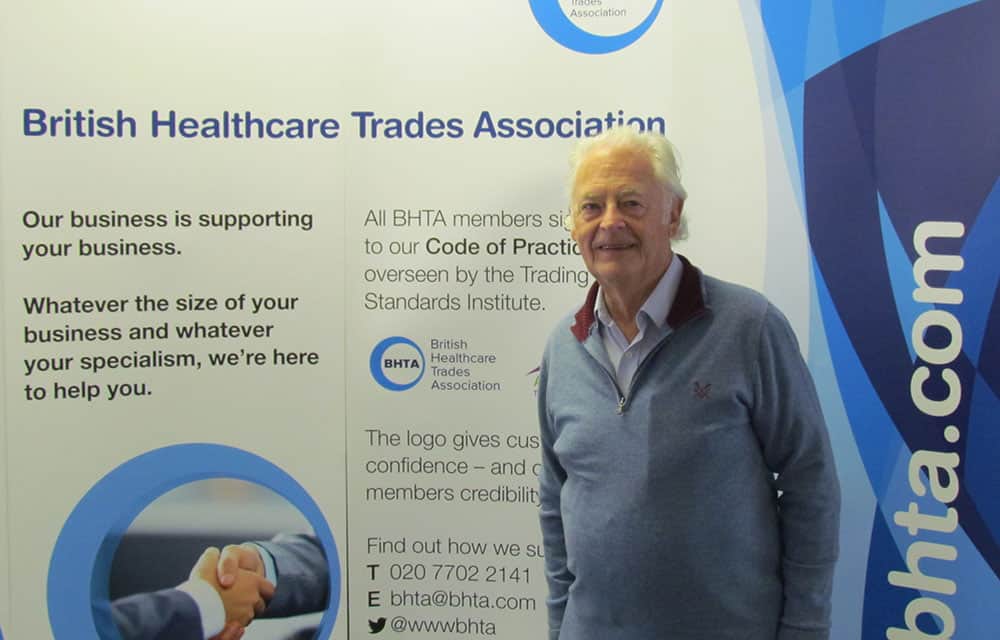Comment: Renewed call by former Director General for industry qualifications in the wake of tragic home lift death

The tragic death of a five-year-old girl using a faulty home lift and the resulting £1.5million fine for two firms found guilty of a myriad of shortcomings, including failing to service and maintain the device, emphasises the need for industry-wide qualifications says former British Healthcare Trades Association (BHTA) Director General Ray Hodgkinson MBE.
Following the case closely since August 2015 when he was then acting Director General of the BHTA, Ray explained to THIIS why the industry must take action to ensure more disastrous incidents are avoided in the future.
By Ray Hodgkinson MBE, former Director General of the BHTA
“It is always distressing to learn of the death of a small child, particularly when, in hindsight, the circumstances of such an accident could well have been avoided. I remember well receiving a call in relation to the incident and to learn now what led to that tragedy is a salutary lesson for us all.
“I was shocked then and learning of the trial outcome some three years later is no less shocking.
“The use of products and services in our sector of Assistive Technology are not shielded from the realities of poor or inconsistent assessment and rigorous service processes. Reports of accidents appear to be on the increase and there is a steady stream of injury and deaths related to equipment (MHRA AI’s report and not the least mobility scooters.)
“No one should be at risk of death or injury from using any of our products and services and whilst human error and the unforeseen is difficult to predict, we must take every step to maximise safety. There is a special responsibility in our sector as so many of those we serve are vulnerable.
“As it happens, a series of lapses in process and servicing contributed significantly to the situation that led to the death of a five-year-old and it seems a large degree of third-party involvement. As an industry, we must remain vigilant but also take positive steps to avoid such risks and outcomes.
“Let’s learn the lessons and take action before qualifications are imposed on those that work in our area of expertise. When dealing with a “vulnerable” situation and families, it may not be sufficient just to be technically qualified for the sale and installation but also have a good grounding in Risk Analysis and ensuring customers are fully aware.
“Whilst the CTSI BHTA Code of Practice plays a vital role in protecting the public, it has always been my concern that to underpin those ideals, there needs to be a robust way of ensuring all those that advise sell and touch vulnerable people clearly show their skills and have them qualified.
“Endorsement of skills brings confidence to both customer and providers. There have been attempts to resolve this and maybe this is the time to re-visit just how this can be achieved in a simple and inexpensive way thus enabling the public, clinicians and authorities to feel confident.
“The Professional Standards Authority are looking for us to do just that. After all you would not buy a pair of spectacles unless you had been assessed by a “professional person”. Our customers deserve that.
“I know too well that cost is a strong argument not take action however this one tragic example, apart from the cost to those found guilty of negligence, reinforces the incalculable cost to the Brown family. My heart goes out to them and they deserve to know that Alexys’ tragic accident gwill lead to positive change and was not in vain. How many other accidents are waiting to happen because we did not take action to ensure we are the best we can possibly be!”


